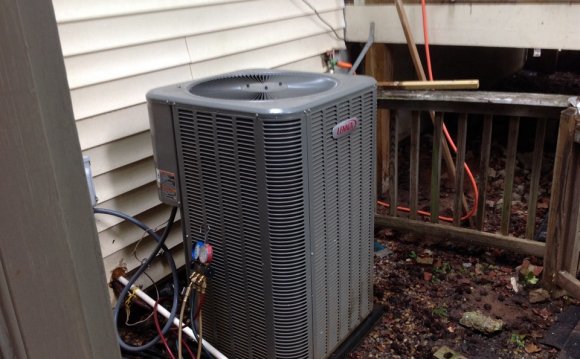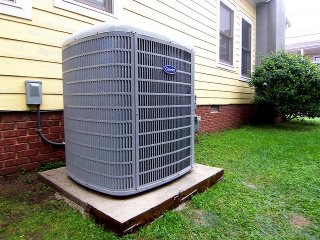

Blockage
Particles and debris can accumulate within the AC unit and lead to blockages, ultimately causing condenser failure. While some of this debris might be external, it’s more often the result of metal particles that have flaked off the condenser itself. This essentially leads to the condenser self-destructing, and it’s usually the result of age or poor maintenance.
Bad Run Capacitor
The AC condenser’s run capacitors energize the component’s fan motors. A run capacitor that’s gone bad will cause a jump but won’t actually start the motor. There’s a good chance the condenser’s run capacitor is bad when the motor won’t start anymore. Run capacitors can decline gradually or go out suddenly.
Bad Condenser Relay Switch
The condenser fan relay switch is the critical part of the condenser that switches the fan on and off when you turn the AC unit on and off. Without a functioning fan, the condenser and the larger AC unit won’t work effectively.
Faulty Control Board
The condenser’s control board is the circuit board that communicates between the various parts. When the control board is faulty, communication breaks down. Critical parts like the fan motor and the coil don’t function or switch on or off like they should, which compromises the entire component.
Damaged Coil
A damaged coil is one of the most severe problems an AC condenser can have. A variety of things, including debris, impact and corrosion, can damage a coil. Because this is such an integral part of the overall component, a damaged coil instantly compromises the entire AC unit.
Burnt Motor
When the condenser’s motor starts to go, it’s often a gradual process. Instead of flaming out in a dramatic fashion, the fan motor will start to move more slowly, working much less effectively over time. Condenser motors typically fail as the result of stress and poor maintenance over a long period.
When to Repair
- Dirty Condenser: This is one of the easiest repairs. If you discover that the area around your condenser is overgrown or that your condenser is covered in dirt or plant matter, simply trim the grass or brush around the unit and continue to provide regular maintenance. If debris is on or around the condenser, clean the area and remove anything that’s blocking or interfering with moving parts.
- Bad Run Capacitor: This is usually an easy repair. Once you’ve confirmed that the run capacitor is the cause of the problem, you can typically swap in a new part.
- Bad Condenser Relay Switch: This is also a simple repair and a relatively insignificant problem in the grand scheme of things. When the condenser fan relay switch goes bad, simply replace the relay.
- Faulty Control Board: When the condenser’s control board starts to malfunction, you’ll need to replace it with a new one. Make sure that any new circuit board you introduce works well with the condenser’s existing parts.
- Burnt Motor: If the motor goes, you typically don’t have any choice other than replacing it with a new one. Be sure to swap it for an identical part if possible, because introducing different specifications into an AC unit can be disastrous. If the specs don’t match, you might have to replace the entire unit.
- Damaged Coil: When your condenser coil is on the fritz, first do some basic maintenance by cleaning the coil. If that doesn’t fix the problem, you’ll have no choice but to replace it. Because this repair requires significant time and labor, it’s typically an expensive fix. If your condenser coil is out of warranty, it’s best to consider just replacing the entire AC unit.
When to Replace
When you’re determining whether to repair or replace your condenser, consider your AC unit’s age. Technological advances for AC units roll out every few years, so you might benefit from simply replacing the condenser or the entire unit if it’s more than 10 years old. Even if a repair would fix the problem, installing a newer and more efficient unit could save you money in the long run.
- Leaks: This might seem like a minor problem, but it’s actually a major one. It’s not possible to replace condenser tubes or seals, so when your condenser starts to leak, you’ll need to replace the entire component.
- Blockage: A blockage also signals a major problem. If you encounter a blockage within your AC system, it’s time to replace the condenser. Unfortunately, depending on the damage, you’ll also need to replace several other expensive parts, such as the compressor. This is a good time to consider simply replacing the entire AC unit if possible.
When to Consider Other Solutions
There’s much more to an efficient and fully functional AC unit than just the condenser, compressor, evaporator or other primary components. You might notice that your home doesn’t cool properly even when the AC unit runs smoothly. If this happens, consider other factors within the AC system.









